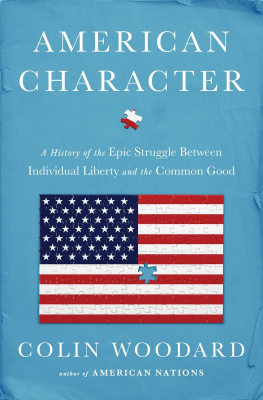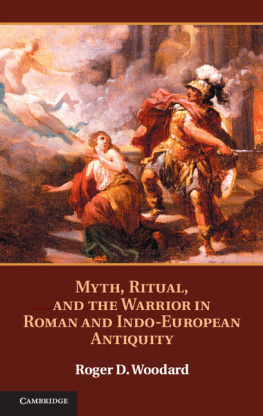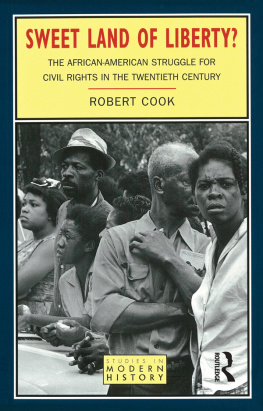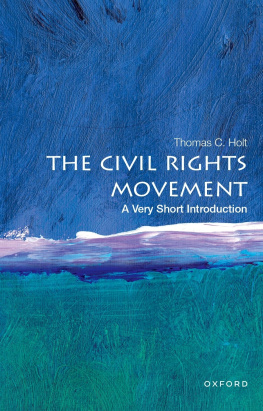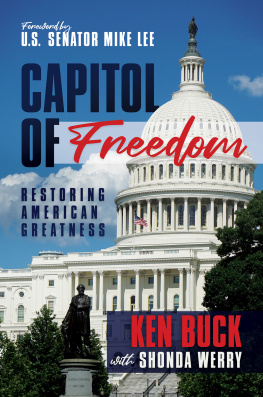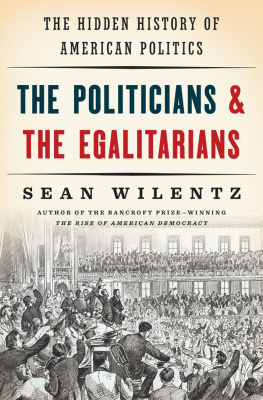Penguin supports copyright. Copyright fuels creativity, encourages diverse voices, promotes free speech, and creates a vibrant culture. Thank you for buying an authorized edition of this book and for complying with copyright laws by not reproducing, scanning, or distributing any part of it in any form without permission. You are supporting writers and allowing Penguin to continue to publish books for every reader.
CHAPTER
Maintaining Freedom
I t was cold, much colder than the passengers crowded aboard the Mayflower had expected. A long beach curved before them, its high dunes protecting them from the open Atlantic beyond, where they had nearly perished amid the Nantucket Shoals. Delayed by storms and business troubles, many of the 101 colonists were now sick, especially the children, their coughs echoing in the fetid hold, itself dangerously bare of supplies. Some of the rest, surly young men who had come on the voyage at the insistence of senior investors in their colonial project, hinted at mutiny. The New England winter would soon be upon them, yet they had no shelter, no livestock, no gear to catch smaller fish, nor harpoons to hunt the hundreds of whales that greeted them in the bay that first morning. All of their lives were in danger. Something had to be done.
They had sailed out of the English Channel two months before, leaving a war-torn continent to port, a depression-ravaged England to starboard. The original party had consisted of Pilgrims, Calvinist separatists seeking a new life in the Virginia Companys lands, which on paper extended all the way to the mouth of the Hudson, where they had obtained permission from King James to settle. Lacking the capital to finance their transatlantic migration, the Pilgrims had turned to a shady group of investors led by a neer-do-well alum smuggler who was himself one step from insolvency. With them, they formed a common stock company that would own the colonys land, buildings, tools, and trading profits for seven years, at which point the company would be liquidated and its assets divided among the shareholders. The capital investors had shares in proportion to their investment, but the colonists received one share each, their sweat equity in the venture.
Now they had arrived, in the chill air of November 1620, but not at the mouth of the Hudson. Frightened by their near deaths on the shoals south of Cape Cod, they had turned north instead, to lands owned, on paper, by Sir Ferdinando Gorges, in a place that would later be called Massachusetts. They were trespassers, in both English and Native American eyes.
Most aboard the Mayflower knew they would need to cooperate or all would perish. Yet the would-be mutineers had pointed out that their royal charter of government was for the lands of Virginia, not Gorgess New England. They threatened that when they came ashore they would use their own liberty, for none had the power to command them. To rectify the situation, others quickly drew up a document and called all the adult men together, from the lowliest laborers to the swashbuckling military man Myles Standish. Modeled on an English town charter, the document committed its signatories to covenant and combine ourselves together into a civil body politic, for our better ordering and preservation. Together they would create such laws, constitutions, and offices as were needed to secure the general good of the colony. The men endorsed this Mayflower Compact by at least a nine-to-one margin, pledging their due submission and obedience to their improvised body of self-government. Twelve years before the birth of John Locke, the Pilgrims had effectively realized the philosophers imaginings of how human government had first been formed: as the voluntary act of freeborn individuals to unite into a community, for their comfortable, safe, and peaceable living one amongst another, in a secure enjoyment of their properties, and a greater security against any that are not of it.
Struggling to find an appropriate town site as winter closed in, they didnt start construction on their first shelter at Plymouth until December 24. Rain, wind, and sickness delayed its completion until the middle of January, at which point many of the settlers were already doomed. There died sometimes two or three of a day in [January and February so] that of 100 and odd persons, scarce fifty remained, recalled William Bradford, who would later be elected governor. In the time of most distress there was but six or seven sound persons. Thankfully the following autumn their first harvest of corn and barley was good, and they celebrated with a three-day feast of Thanksgiving, at which they were joined by ninety members of the Wampanoag tribe who had helped them in their distress. Although it be not always so plentiful, by the goodness of God, we are so far from want, colonist Edward Wilson wrote friends in England shortly thereafter, that we often wish you partakers of our plenty.

Three hundred and eighty-nine years later, one of Americas most popular talk radio personalities, Rush Limbaugh, was telling millions of listeners the true story of Thanksgiving and the Pilgrims, part of an annual ritual on his program. It was a commune, folks, he told his followers. It was the forerunner to the communes we saw in the sixties and seventies out in Californiaand it was complete with organic vegetables, by the way.
In Limbaughs telling, the colonys stockholding company and its corporate property were portrayed as a communist experiment, each individual colonists single share in the venture evidence of productivity-killing collectivism. Thats right. Long before Karl Marx was even born, the Pilgrims had discovered and experimented with what could only be described as socialism, Limbaugh continued. And what happened? It didnt work! They nearly starved!... They did sit down and they did have free-range turkey and organic vegetables, but it was not the Indians who saved the day. It was capitalism and Scripture which saved the day.
Limbaugh, broadcasting in 2010, was drawing on a narrative tradition more than half a century old, and one already widely disseminated among the radical libertarians of the Tea Party movement. In 1951, as U.S. civil defense authorities were preparing Americans to survive a nuclear exchange with the Soviet Union, popular historian Bradford Smith published a biography of his ancestor, Governor Bradford, lionizing him for overthrowing Plymouths communist society. The Pilgrims story, Smith advised, was a true parable of the American faith in the dignity of labor and the rights of the individual... the course [America] still defends against all assaults. In the 1960s, libertarian journalist Henry Hazlitt, a personal friend of Ayn Rand and the economist Ludwig von Mises, tied the storyline to Thanksgiving, urging readers to be thankful for this valued lesson from our fathersand yield not to the temptations of socialism. By 2005, anticommunist Christian conservative senator Jesse Helms of North Carolina was arguing that the Mayflower Compact had created a share the wealth society and thus Communism came over on the

